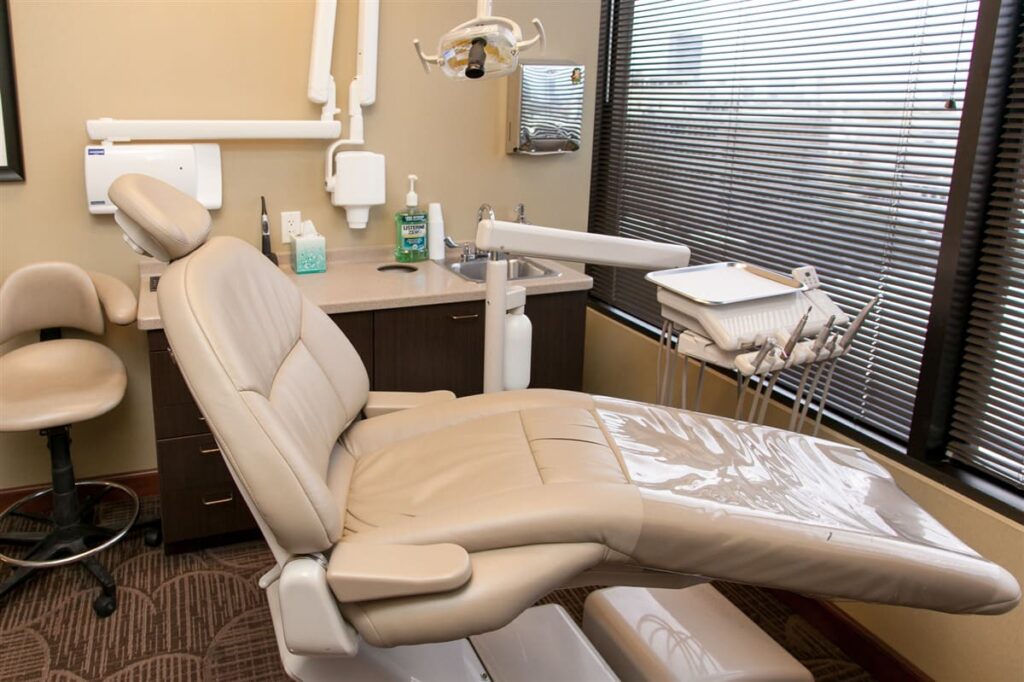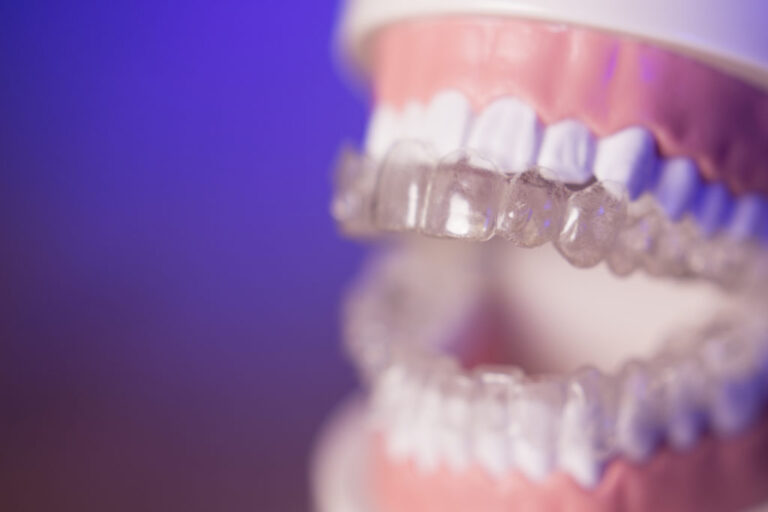A: Some do, some don’t—it’s real important that you let us know your insurance provider. What we’ll do in advance of your appointment, is follow up with your insurance to see if they’ll pay for it. When they do pay for dental implants, it’s usually about 50% of the cost. Sometimes they’ll cover the crown on top, sometimes they won’t. So, each insurance is completely different and we need to research it.
So, you’ve done your research into dental implants and conclude that it’s the best option for you. That’s great—you really are making the best decision for your oral health and overall self-confidence.
The next step is figuring out how to work out the financial aspect of paying for dental implants. For most patients, the deal hangs on whether their insurance helps with dental implants or not. Each insurance plan is different in terms of coverage and exclusions. So, you’ll need to delve into your plan and what you’re covered or not covered for to make a sound decision.
However, what we can do here is discuss some general coverage information regarding dental implants. For example, when insurance does cover dental implants, how much they cover, and what limitations there are. Hopefully, this quick overview will give you a better understanding of how dental implants can be financially feasible.
Are Dental Implants Covered By Basic Dental Policies?
Typically, basic dental policies don’t cover dental implant surgery—or any procedures deemed cosmetic. Unfortunately, many basic policies consider dental implants just that—cosmetic. Implants are so much more than cosmetic though. Dental implants save your jawbone and prevent further dental problems due to missing teeth.
You will want to search for a policy that offers a cosmetic dentistry rider to cover implants. Most riders will cover only a portion of the cost of dental implants. Some could be as much as 50%, others as little as 20% or less.
Sometimes, medical insurance policies will cover a portion of dental implant procedures as well. It just depends on your policy. If you don’t have dental insurance on your policy, you can purchase a standalone policy. Some discount dental programs offer some assistance for implants.
When Are Implants Covered By Insurance?
If you currently have a dental and medical policy you should check your coverages to see if cosmetic dentistry is covered. If it does cover dental implants you’ll want to research the following important factors:
- Annual maximum coverage: Insurance companies usually institute a cap on how much they will pay out in dental care annually. This is called your annual maximum coverage—any dental care costs above that are out of your pocket.
- Pre-existing conditions: Most insurance policies don’t cover conditions that existed before your policy was active. So, if you get a policy this month, it won’t cover a problem that originated before the policy active date. You should check with your provider to see if there are any pre-existing conditions they will cover.
Questions To Ask Your Insurance Provider About Coverage For Implants
If you want to find out more about your insurance coverage and exclusions, you’ll need to speak with your insurance provider. You will want to ask these key questions to get the most complete and accurate information. You can also ask these questions when shopping for dental insurance, especially for dental implant coverage.
1. What Dentists Are In Your Network?
This is one of the most important questions, especially if you already have a dentist you trust. You can ask if your current dentist is in the network. If not, or you don’t already have a dentist, at least you want a wide selection to choose from.
2. Are You Allowed To Choose Your Dentist?
This is the obvious follow-up to the first question and you may reveal this answer within that question as well. If not, you’ll want to find out the policy on choosing your dentist—some policies allow that, while others don’t.
3. Is There A LEAT Clause (Least Expensive Alternative Treatment)?
Some insurance policies only cover the least expensive of all available treatment options for your issue. For example, for a decayed tooth, a bridge or a dental implant are both treatment options. A LEAT clause means the insurance will only pay for the least expensive option.
4. How Is The Coverage Structured?
Some plans may cover half of the cost of dental implants while others may cover very little, like 20%. Their coverage may also vary based on procedures. For example, dental implants could be at 50% coverage while extractions are at 80%. Your insurance might also cover your complete cost for exams and a majority of extractions. Both of these procedures may be necessary for dental implants so make sure you’re aware.
5. Are There Any Aspects Of A Dental Implant Procedure That Are Excluded?
While your insurance may cover dental implants, there may be aspects of the procedure excluded from coverage. For example, a policy may cover only the artificial crowns but not the implants and vice-versa. Some policies may only pay for the extraction and the exam. Check your coverages thoroughly so there aren’t any last-minute surprises.
6. Can Dental Appointments Be Scheduled At Your Convenience?
While not common, some policies have restrictions on when dental implant appointments can be scheduled. Once again, just clear it up with your policy advocate before proceeding.
What Does Your Insurance Cover?
Depending on the insurance you have, the extent of your dental coverage will vary. For example, medical insurance policies may include dental benefits. However, that coverage may be very limited and only include basics like checkups or cleanings twice a year. A premium dental rider or standalone policy on the other hand may cover things like:
- Preventative care: Routing checkups and cleanings.
- Basic Restorative care: Basic restorative procedures such as crowns or fillings.
- Endodontics: Root Canals
- Oral Surgery: Extractions, gum biopsy, bacterial infection drainage, installation of implants.
- Orthodontics: Braces, plastic aligners, and retainers/nightguards.
- Periodontics: Scaling, gum grafts, periodontal surgery
- Prosthodontics: Dentures, dental bridges, and dental implants
According to the National Association of Dental Implants, all of these procedures are sorted into three main categories of coverage for purposes of payment. Those categories are basic procedures, preventative care, and major procedures. Typically preventative care is covered at 100% within the plan guidelines. Basic services such as fillings, gum disease treatment, extractions, and root canals may be covered. However, the coverage is usually not 100%—normally, it’s more around 80% for most plans. The least amount of coverage is typically reserved for dental crowns, implants, and dentures—around 50%. It’s also commonplace for insurance plans to have a waiting period of twelve months or less on major procedures.
Be sure to speak to your policy advocate about any waiting periods or other important exclusions or limitations to coverage.
Dental Insurance Plan Types
If you’re shopping for dental insurance you will come across a variety of plans. Preferred Provider Organization (PPO) and Dental Maintenance Organization (DMO) are the most common kinds. There is also a third option—Dental HMO plans, which are a less expensive option.
In a DMO plan, you choose a primary care dentist and need a referral to see a specialist such as an oral surgeon. However, in a PPO plan, no referral is needed and you can go to any dentist you wish. However, it’s cheaper to go to a preferred dentist within the network. There is also a Dental Indemnity Plan, which has no restrictions on which dentist you see and requires no referrals.
What If I Don’t Have Insurance?
If you are without insurance and considering dental implants, it’s wise to seek out coverage ASAP. Dental insurance not only can cover routine visits that are critical for good oral health but also extensive procedures. Dental implants are one of those procedures some policies cover up to a certain amount.
However, what if you can’t afford dental insurance? Fortunately, at Comprehensive Dental Group, we offer financing options for dental implants. Care Credit and Lending Club, and Greensky are the financial institutions that help many of our patients. These plans offer varying lines of credit or installment loans to make your dental implants a reality.
Get Your Dental Implants From Dr. Hanna
Missing teeth or teeth that have decayed can wreck your self-esteem and confidence in your smile. However, with dental implants, you can have a brand new smile, often in a single-day procedure!
Don’t let insurance limitations or lack of insurance stop you from getting your smile back. Contact us today and see what we can do for you.






